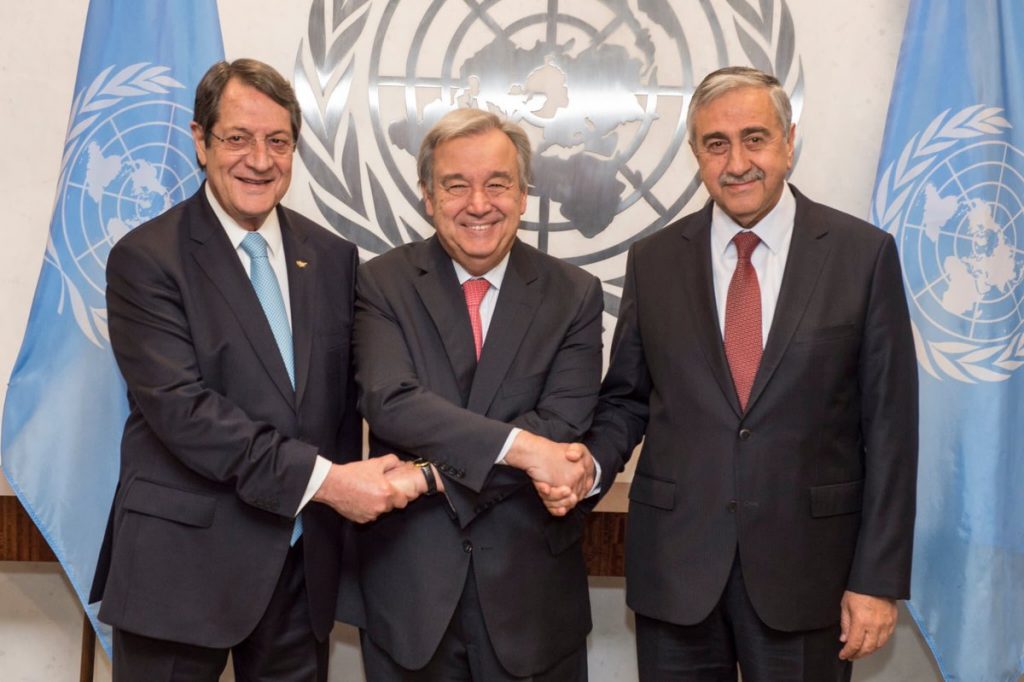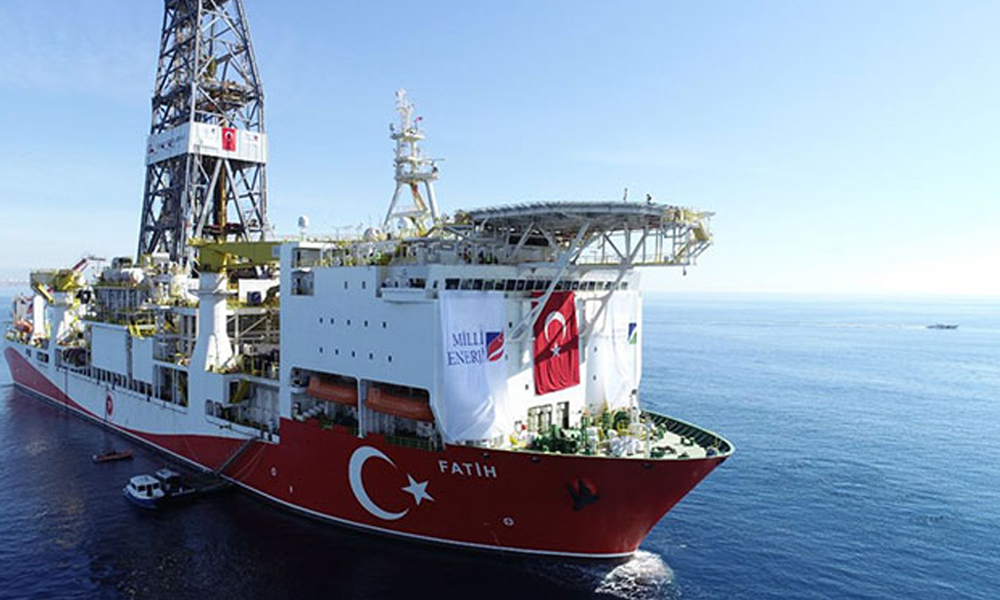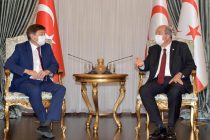A British peer has spoken out about the injustices faced by Turkish Cypriots in a debate in the House of Lords on the Queen’s Speech.
Welcoming the fact that Cyprus was “mentioned in the Tory manifesto”, Lord Sharkey highlighted the international isolation of Turkish Cypriots, stating that, “The north of the island continues to live under an unfair, unjust and unnecessary embargo”.
The Liberal Democrat peer, who heads the All-Party Friends of the Turkish Republic of North Cyprus (TRNC), also referred to both Cypriot leaders as “president” in a pointed move to treat both communities equally: “The latest efforts began in 2015 with the election of President Anastasiades in the Greek south and President Akinci in the Turkish north.”
Reminding the House of Britain’s ongoing responsibility to Cyprus – “The United Kingdom had been heavily involved in these [2017] talks, not only because of our long historical connection with Cyprus but because we remained—and remain—a guarantor power.
Lord Sharkey highlighted how “the entire eastern Mediterranean region is enormously more turbulent and less stable”, stating that “The undersea oil and gas assets around the island are contributing to greatly increased tensions rather than to greatly increased prosperity.”
He reminded the House of Turkey’s importance in the region: “Turkey remains a significant factor in how and by whom these resources are developed. It has taken an increasingly assertive stance over drilling rights. Warships have been deployed…. Turkey has stated bluntly that no project can be successful that excludes Turkey and Turkish Cypriots.”
The Liberal Democrat peer asked the British government to take three measures to assist Turkish Cypriots, starting with ending the disembarkation requirement for travellers between London and Ercan Airport in the TRNC capital Lefkoşa.
“The first is to remove the requirement that all passengers travelling from London to Ercan in Northern Cyprus must deplane with all their baggage to undergo security checks in Turkey. We imposed this condition relatively recently and we could lift it.”

He also called on Boris Johnson’s government to help improve “access for the north to international capital and investment” and to support confidence-building measures by “providing help and advice on the implementation of the further 21 measures proposed by the UN Secretary-General in February 2019.”
Lord Sharkey’s speech in full, made on 7 January 2020:
My Lords, I was glad to see Cyprus mentioned in the Tory manifesto in the context of resolving the long-standing and damaging division of that island. This division quite unfairly penalises the Turkish Cypriots, through no fault of their own. It has now continued for 50 years and the plight of the Turkish Cypriots gets worse. Economic output lags behind, trade is significantly embargoed and dependence on an increasingly erratic Turkey increases. The existence of a distinct Turkish Cypriot identity is also under real threat, as Turkish immigration increases.
Ever since the de facto partition of the island, however, there have been efforts to reunite it. The latest efforts began in 2015 with the election of President Anastasiades in the Greek south and President Akinci in the Turkish north. Talks continued until a final conference in Crans Montana in July 2017, when negotiations collapsed at the very last moment. The United Kingdom had been heavily involved in these talks, not only because of our long historical connection with Cyprus but because we remained—and remain—a guarantor power. Blame for this collapse was, of course, attributed by each side to the other. Things have not stood still since then. The entire eastern Mediterranean region is enormously more turbulent and less stable, while behaviour becomes harder to predict with any confidence at all. The north of the island continues to live under an unfair, unjust and unnecessary embargo; the south continues to be a magnet for Russian money and influence. The undersea oil and gas assets around the island are contributing to greatly increased tensions rather than to greatly increased prosperity. Turkey remains a significant factor in how and by whom these resources are developed. It has taken an increasingly assertive stance over drilling rights. Warships have been deployed.
Equally, proposals to build a new undersea pipeline from Israel to Greece and Italy via south Cyprus and Crete, signed last Thursday, have been condemned as unrealistic, provocative and needlessly expensive. Turkey has stated bluntly that no project can be successful that excludes Turkey and Turkish Cypriots.

Despite all this, there are some grounds for guarded optimism. In his report on Cyprus of last November, the UN Secretary-General says:
“I continue to hold out hope that a durable settlement to the Cyprus problem can be achieved … I have continually emphasized that natural resources in and around Cyprus constitute a strong incentive for a mutually acceptable and durable solution”.
He also notes the findings of the recent World Bank public perception survey financed by the EU. This shows that a majority of both Greek and Turkish Cypriots found that the status quo was unacceptable and that support for a settlement had reached an all-time high, with a clear majority of respondents being in favour. The same survey also confirmed that the only mutually acceptable solution remains the bi-communal, bi-zonal federation model.
What can the UK do to continue to help? I suggest three measures for the Government’s consideration. The first is to remove the requirement that all passengers travelling from London to Ercan in Northern Cyprus must deplane with all their baggage to undergo security checks in Turkey. We imposed this condition relatively recently and we could lift it. I know from conversations with President Akinci and his officials that they would install and allow monitoring of any equipment or security regime we thought necessary.
The second measure is to investigate and encourage with other interested parties means of improving access for the north to international capital and investment. The third is to build on the success of the limited number of confidence-building measures by providing help and advice on the implementation of the further 21 measures proposed by the UN Secretary-General in February 2019. Any of these would greatly help and I commend them to the Government.





